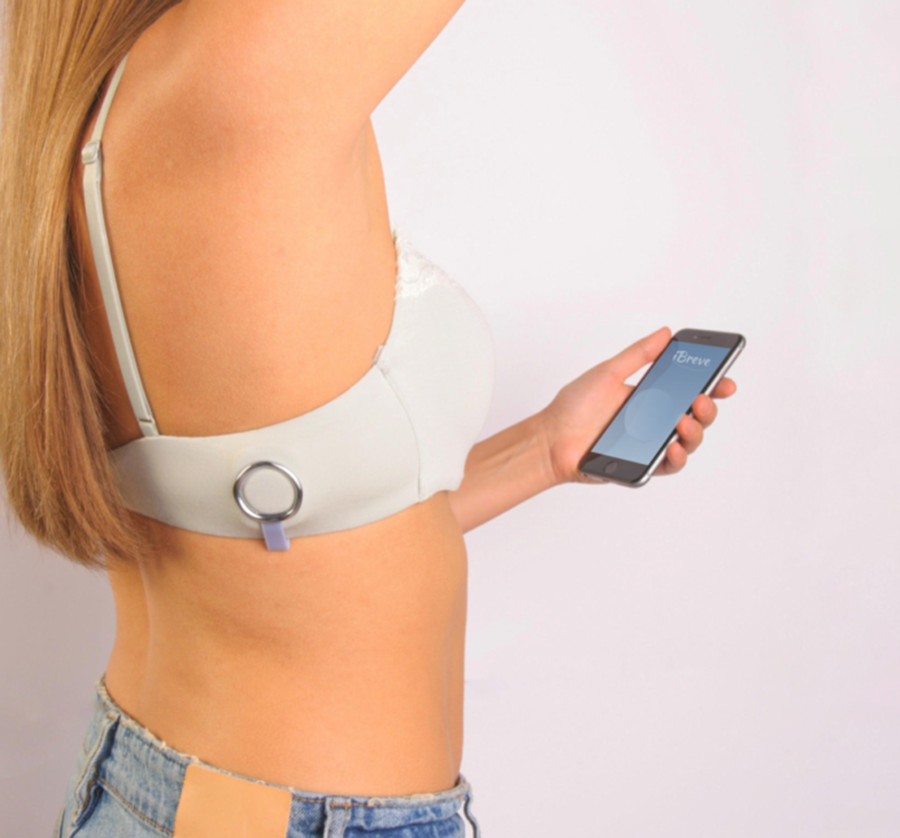Unfortunately, stress has become a common part of life for millions of people all over the world. In the U.S., 49% of adults have reported experiencing at least one major stress trigger in the past year, according to a study conducted by NPR, the Robert Wood Johnson Foundation and the Harvard School of Public Health. Stress impacts our physical health just as much as our mental health. American Institute of Stress notes that 80 to 90 percent of disease is stress-related.
Read more Stanford Researchers Develop Wearable That Measures Stress Through Sweat
What if there was a device that could handle stress? Luckily, two former Google employees aiming to create a world free of stress related diseases developed iBreve – a wearable device to handle stress.
When you become too stressful, people advice you to stop, breathe and relax. iBreve helps you to enhance your stress resilience by analyzing breathing patterns with Machine Learning.
iBreve, the Healthcare WT Innovation World Cup® 2017/18 finalist, can help you to instantly calm down with clinically proven breathing exercises and also monitors your stress level.
The word iBreve is a combination of “I breathe” and “Eve” – as it’s focused initially on women’s health & well-being.

The wearable device can be attached to a bra. The device was tested on numerous users to make it a truly human-centered and discreet stress management tool. For example, its makers monitored breathing patterns of office workers and one fascinated finding was that they were able to correlate ‘holding the breath’ with certain tasks like opening the e-mail inbox.
Read more Construction Safety: Wearables Could Monitor Stress, Risk and Physical Demands
The iBreve team works on the treatment side to find out the best way to help people in stress related situations. As a result, they integrated breathing games, mindfulness exercises & customizable reminders in the iBreve app. They said iBreve could be a good wearable to use at work.
“Although we see very promising results of people using iBreve at work, we want to clinically quantify the extent in stress reduction. As part of the EIT Health program we are working on measuring the impact that iBreve has on the user’s well-being & stress level. To accomplish our mission, we are currently looking for partner hospitals and patients willing to join us for a 2-month trial period,” they said.
“Our long-term goal is to help people who suffer from anxiety or respiratory diseases. We want to make their daily breathing exercises more fun, motivate them to exercise and enable them to track their improvements. We will be therefore in Boston in October for an extended immersion program of the American healthcare system.”
The team is also working on a male version of the device. The wearable for men would be attached around the waist line.









